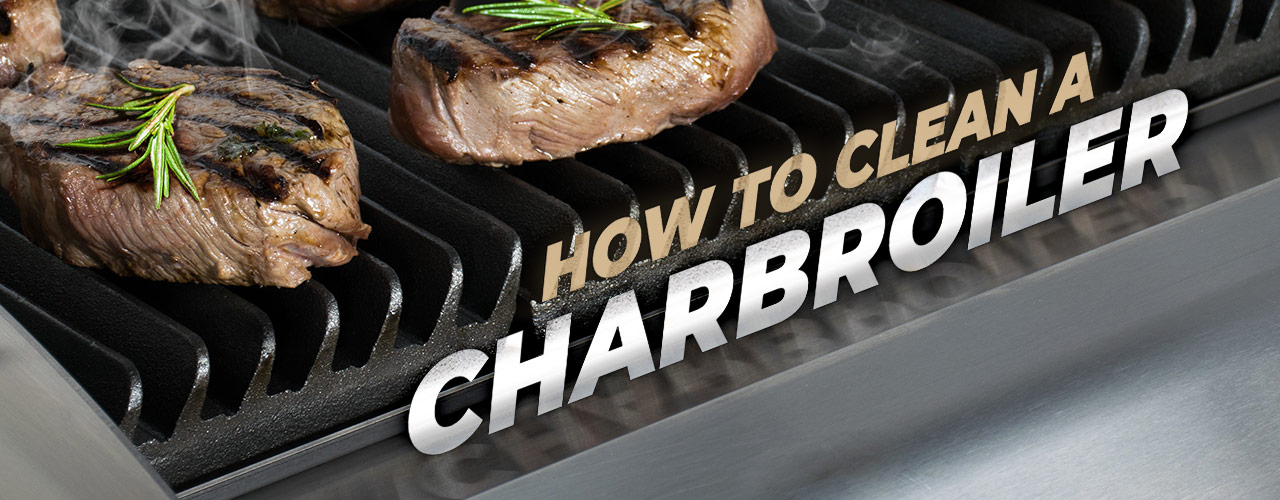
Maintaining your charbroiler, along with any kitchen equipment, helps to foster a safe and sanitary work environment. Regular cleanings reduce residue and grease build-up, which can prevent grease fires. Plus, removing excess particles ensures your fresh foods aren't absorbing unwanted flavors. This allows you to maintain high-quality food and prevent costly or time-consuming maintenance issues. Follow these simple steps to keep your charbroiler clean.
Shop All CharbroilersHow to Clean a Charbroiler Video
What Do I Need to Clean My Charbroiler?
Choosing the right brush to effectively clean your charbroiler's grates can minimize labor. In addition to the right grill brush, here are a few items you should have on hand to effectively clean your charbroiled:
- Wash cloth
- Soap and warm water
- Cleaning gloves
- Spray degreaser
- Optional: Grill cleaner
How to Clean a Commercial Charbroiler
To learn how to clean a commercial charbroiler, adhere to the steps listed below. We've also included a video that walks you through each step of the process.
-
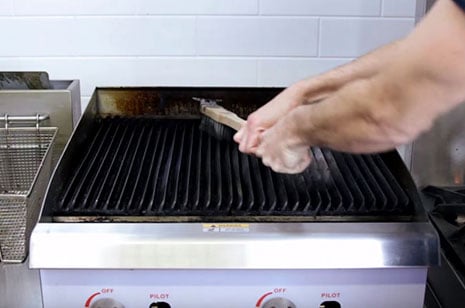 1.
1.Make sure your charbroiler is still hot but not on. Use a wire brush or scraper to remove stuck-on particles or fat from grates.
-
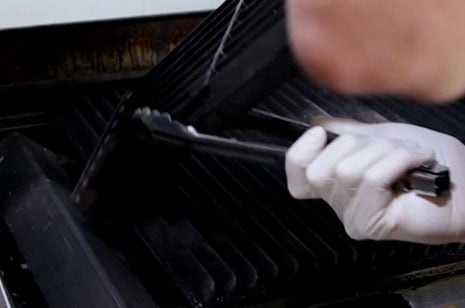 2.
2.Once the tops have been cleaned, flip the grates over and thoroughly clean the bottoms.
-
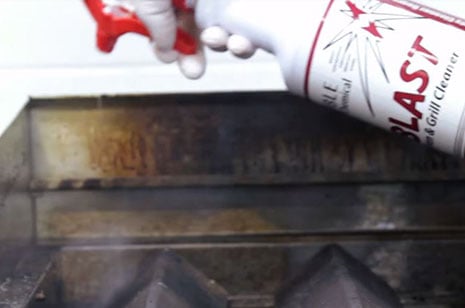 3.
3.Wait for your charbroiler to cool completely. Use a damp cloth or sponge, along with soapy water, to clean the rest of your grill. For excess build-up, use a degreaser or heavy-duty grill cleaner. Be sure to thoroughly rinse the degreaser away from the charbroiler after use.
-
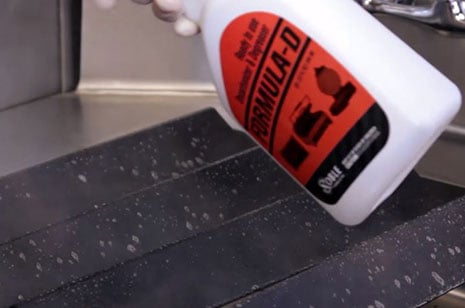 4.
4.Optional: If you use a radiant charbroiler, clean the radiants as well. We recommend doing this in the sink. For lava rock charbroilers, flip the stones every few weeks to burn off any accumulated grease.
How to Clean Cast Iron Grates
When it comes to using cast iron cookware, it's essential that you and your staff stay educated on how to properly clean it. Not only do cast iron cooktop grates have a tendency to rust if not cared for properly, but leaving grease and food stuck to the surface can make contribute to bacterial growth. Below, we'll walk you through the process of cleaning and seasoning your cast iron grill grates.
Cleaning Cast Iron Grill Grates
To clean cast iron grill grates, follow these steps:
- Remove leftover food: Set your charbroiler to high heat in order to burn off any leftover food particles.
- Cool down: Turn off the unit and allow it to cool.
- Brush: Use a wire brush to remove the burnt food and ashy residue from the grates.
- Flip: Once one side is clean, flip the grate over and brush the other side.
After the cast iron charbroiler grates have been cleaned, season the grates to prevent rusting and extend their longevity.
Seasoning Cast Iron Grill Grates
To properly season your cast iron grill grates, follow these instructions:
- Add oil: Coat the grates thoroughly with a high heat oil like canola oil or peanut oil by using a spray bottle or soaked paper towels.
- Wipe: Using a clean paper towel, wipe off any excess oil. You should still see an even coating of oil left behind.
- Heat: Heat the grill for approximately 15 minutes to allow the oil to bake into the grate.
- Add more oil: Once the grates have cooled, lightly coat the grates once more in oil.
- Repeat as needed: Repeat the season process after each cleaning.
FAQ
Below, we've answered some of the most commonly asked questions about charbroilers:
How Often Should I Clean My Charbroiler?
Depending on how often you use your charbroiled, it's best to clean it daily. Grease, food particles, and fat accumulate along the top and bottom of the grates, as well as the sides, front, and back of your grill.
What Is a Charbroiler Used For?
Charbroilers are used to grill various meats, including beef, chicken, and fish. They are larger than traditional grills, allowing you to cook more food at once. Used indoors, charbroilers give food the appearance and taste they would have if they were cooked on an outdoor grill.
Incorporate these simple steps into your cleaning routine to ensure your charbroiler is safe to use in your commercial kitchen. Keeping your equipment clean can both extend the life of the product and prevent food from absorbing or transferring flavors.









